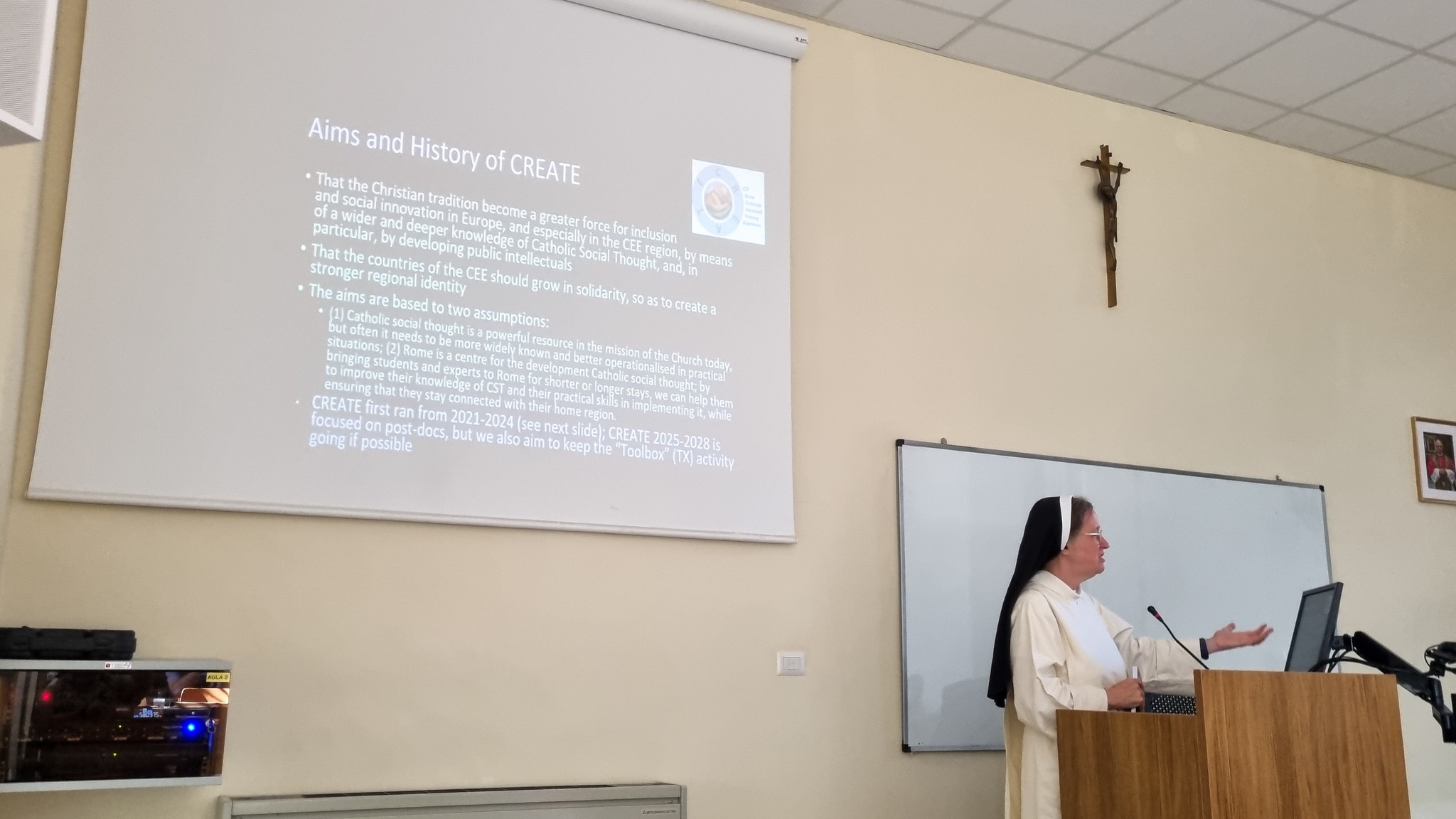Share
Book Presentation: Creation and Care: Young People, Vulnerable Groups, and Integral Lifestyles by Assistant Professor Brgles at the Angelicum University in Rome
At the Pontifical University of St. Thomas Aquinas in Rome (Angelicum), during the FASS Research Symposium held on 10 June 2025, Assistant Professor Dr. Miriam Mary Brgles presented the research findings published in her book entitled Creation and Care: Young People, Vulnerable Groups, and Integral Lifestyles. The book was published by Marcianum Press, with a foreword written by Associate Professor Dr. Zoran Turza, and peer reviews provided by Associate Professor Dr. Ivana Brstilo Lovrić and Dr. Elena Šiaudvytienė (LCC University, Lithuania). The editor was Dr. Marina Russo (Angelicum).
Alongside Dr. Brgles’ book, Dr. Pierre Januard, OP (Angelicum), presented his book titled Thomas Aquinas on Risk in Economic Activity. The panel of respondents included Professor Dr. Cristiano Colombi (Angelicum), Tony Persico (Italian Ministry of Economy and Finance), Maria Teresa Avila Fuentes (Angelicum), and Fr. Angelbert Chikere (Angelicum). The symposium was moderated by the Dean of the Faculty of Social Sciences and President of the Pontifical Academy of Social Sciences, Sr. Helen Alford, OP.
The key theoretical result of Dr. Brgles’ study is a redefinition of the concept of lifestyle, now understood as an “integral lifestyle” and defined as a relational good that contributes to the common good. This reconceptualization is grounded in the relational sociology of Pierpaolo Donati, the morphogenetic approach of Margaret Archer, the personalist ethics of Karol Wojtyła, the hierarchy of needs developed by Dominican sociologist and economist Louis Joseph Lebret, and the encyclicals Laudato Si’ and Fratelli Tutti by Pope Francis. The foundations of an integral lifestyle include ethical principles, reflexivity, non-material goods, purposeful action, creativity and belonging, and compassionate introspection.
The empirical research was conducted using interview methodology and arts-based, community-based research involving young people (ages 18 to 35) and vulnerable groups such as migrants, socially marginalized individuals, Croatian war veterans, and persons with disabilities in both Croatia and Italy.
The results indicate that integral lifestyles embody the notion of relational goods, as they are based on solidarity, friendship, and a sense of "brotherhood" with those in need and the vulnerable. These are relationships built on trust and shared actions that address both the “cry of the Earth” and the “cry of the poor.” One key recommendation is the active inclusion of young people in decision-making processes, allowing their engagement to influence macro-level social change. Another recommendation is the further integration of volunteering or community-based learning into educational curricula, to involve as many young people as possible in activities that promote the common good.
A review of the book by Dr. Elena Šiaudvytienė was published in the journal Studia Ecologiae et Bioethicae and is available at the following link.





